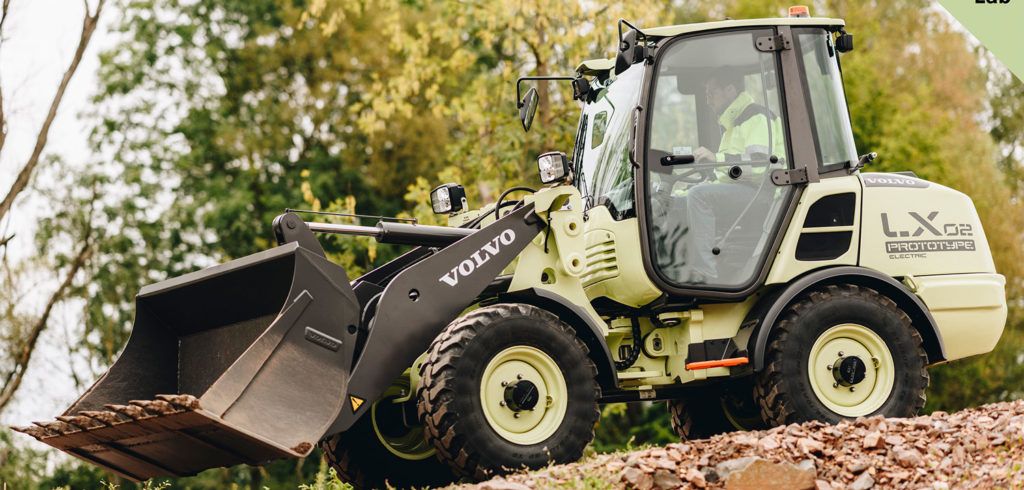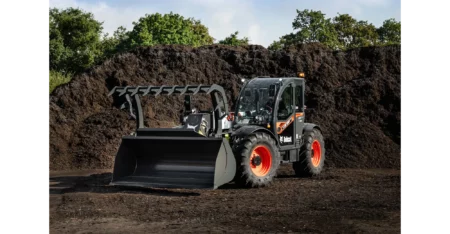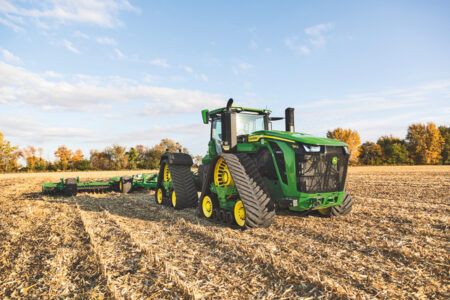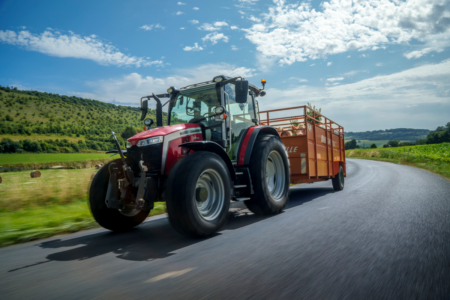Volvo Construction Equipment has demonstrated the capabilities of its prototype electric compact wheel loader. The LX2 was unveiled to the world at the company’s Innovation Summit in Berlin, Germany, this week.
To make the LX2 wheel loader electric, the combustion engine has been replaced with a lithium ion battery. This stores enough electric energy to operate the machine for eight hours in its most common applications, such as light infrastructure construction and landscaping.
The LX2 also incorporates two dedicated electric motors, one for the drivetrain and one for the hydraulics. Decoupling the subsystems has led to higher efficiency in both the systems and the entire machine.
The prototype wheel loader delivers zero emissions, 10 times higher efficiency, 10 times lower noise levels and reduced total cost of ownership compared to its conventional counterparts.
“The LX2 is a revolutionary zero-emissions prototype that offers improved efficiency and lower operational costs, without compromising on machine performance,” said Ulrich Faß, emerging technologies manager at Volvo CE.
“It incorporates the latest advanced chemistry battery technology. As it’s electric, no particulate matter, nitrogen oxide or carbon dioxide are released into the environment. This, together with the fact that it has extremely low noise levels, makes it ideal for use in cities and densely populated areas, as it can be used without disturbing people. This is the same for the EX2 100% electric compact excavator, therefore the machines would be ideally suited to working alongside each other.”
Both vehicles are prototypes part of a research project and Volvo does not, at this stage, intend to make either machine commercially available.
Low-emission quarry
At the summit, Volvo CE also presented its electric site research project which aims to transform the quarry and aggregates industry by reducing carbon emissions by up to 95% and total cost of ownership by up to 25%.
The company is currently testing the electric site solution in a real production environment for 10 weeks at Skanska’s Vikan Kross quarry, near Gothenburg, Sweden. The system incorporates prototype electric and autonomous machines including the HX2 autonomous, battery-electric load carrier, the LX1 hybrid wheel loader and the EX1 cable-connected excavator. These machines are also part of a research project and so are similarly not commercially available.





